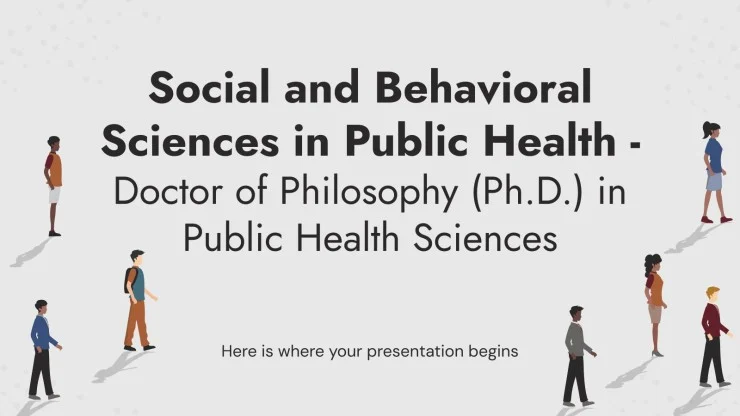Ph.D. in Behavioral and Social Health Sciences: Introduction, Admission, Registration, Eligibility, Duration, Fees, Syllabus 2024

Introduction:
A Ph.D. in Behavioral and Social Health Sciences is designed for individuals looking to conduct research at the intersection of behavior, social environments, and health outcomes. This program aims to cultivate experts who can develop, evaluate, and implement strategies to address contemporary health challenges influenced by behavioral and social factors. Graduates are prepared to apply multidisciplinary approaches to public health issues, influencing policy and practices at local, national, and global levels.
Admission Process:
- Application Form: Submission of a completed application form along with a non-refundable fee.
- Academic Records: Transcripts from all post-secondary institutions attended.
- Letters of Recommendation: At least three letters from academic or professional references.
- Statement of Purpose: A detailed statement outlining the applicant’s research interests and professional goals.
- CV/Resume: A comprehensive CV or resume detailing educational background, research experience, and publications.
- Interview: An interview with faculty members, either in person or via video conferencing.
Eligibility:
- Educational Background: A Master’s degree in public health, psychology, sociology, or a related field.
- Research Experience: Demonstrable experience in research methodologies applicable to behavioral and social health sciences.
- Academic Performance: Strong academic records with a focus on relevant coursework.
- GRE Scores: Required by some programs, particularly in the United States.
- Language Proficiency: Proficiency in English, with required scores on TOEFL or IELTS for non-native speakers.
- Interpersonal Skills: Strong communication and analytical skills are essential for success in collaborative research environments.
Completion Time:
The completion time for a Ph.D. in Behavioral and Social Health Sciences typically ranges from 4 to 6 years. The first two years are generally devoted to completing required coursework and passing comprehensive exams. The remaining time focuses on conducting original research and writing a dissertation. The duration may extend depending on the scope of the research project, funding status, and the student’s pace in completing their dissertation.
Career Opportunities:
- Academic Positions: University professor, research fellow, or academic administrator.
- Public Health Leadership: Roles in government agencies or international health organizations.
- Non-Profit Sector: Executive or researcher at NGOs focusing on health issues.
- Private Sector: Research and development positions in health services or pharmaceutical companies.
- Consultancy: Health policy advisor or consultant in behavioral health.
- Entrepreneurship: Starting innovative health solutions or services companies.
Syllabus:
- Advanced Biostatistics
- Health Behavior Theories
- Social Determinants of Health
- Epidemiological Methods
- Health Policy Analysis
- Ethical Issues in Health Research
Internship Opportunities:
- Health Departments: Gaining practical experience in government health programs.
- Non-Governmental Organizations: Working on health projects that address social determinants.
- Research Institutes: Engaging in cutting-edge health research.
- Clinical Settings: Applying behavioral science in real-world clinical settings.
- Corporate Internships: In health-focused companies like wellness firms or insurance companies.
- International Health Organizations: Opportunities to work on global health issues.
Scholarship and Grants:
- University Scholarships: Offered based on merit or need.
- Government Scholarships: Available for research in priority health areas.
- Private Grants: Funds from health foundations and non-profits.
- Corporate Sponsorships: For research aligned with corporate interests in health.
- International Scholarships: For studying abroad or for international students.
- Teaching and Research Assistantships: Providing funding and practical experience.
FAQs:
What kind of research projects do Ph.D. students undertake?
Projects typically focus on understanding and solving health issues through behavioral and social lenses.
Are there opportunities for interdisciplinary research?
Yes, many programs encourage interdisciplinary approaches with other fields such as economics, anthropology, and environmental sciences.
What are the funding opportunities for Ph.D. students?
Most students receive funding through scholarships, grants, or assistantships.
Can I pursue this Ph.D. part-time?
Some programs offer part-time options to accommodate working professionals.
What skills are crucial for success in this Ph.D. program?
Analytical skills, research methodology, critical thinking, and effective communication.
What are the post-Ph.D. certification or licensing requirements?
This depends on the career path; clinical roles may require specific certifications.
